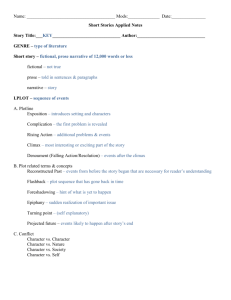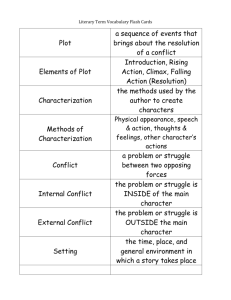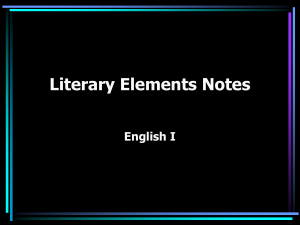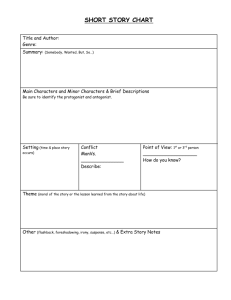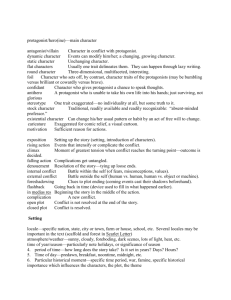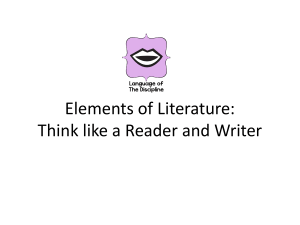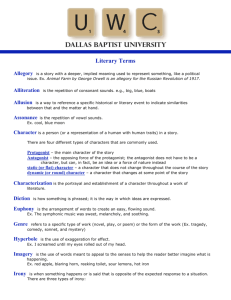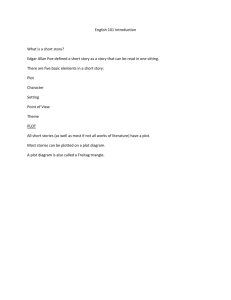Literary Terms - Mentor Public Schools
advertisement
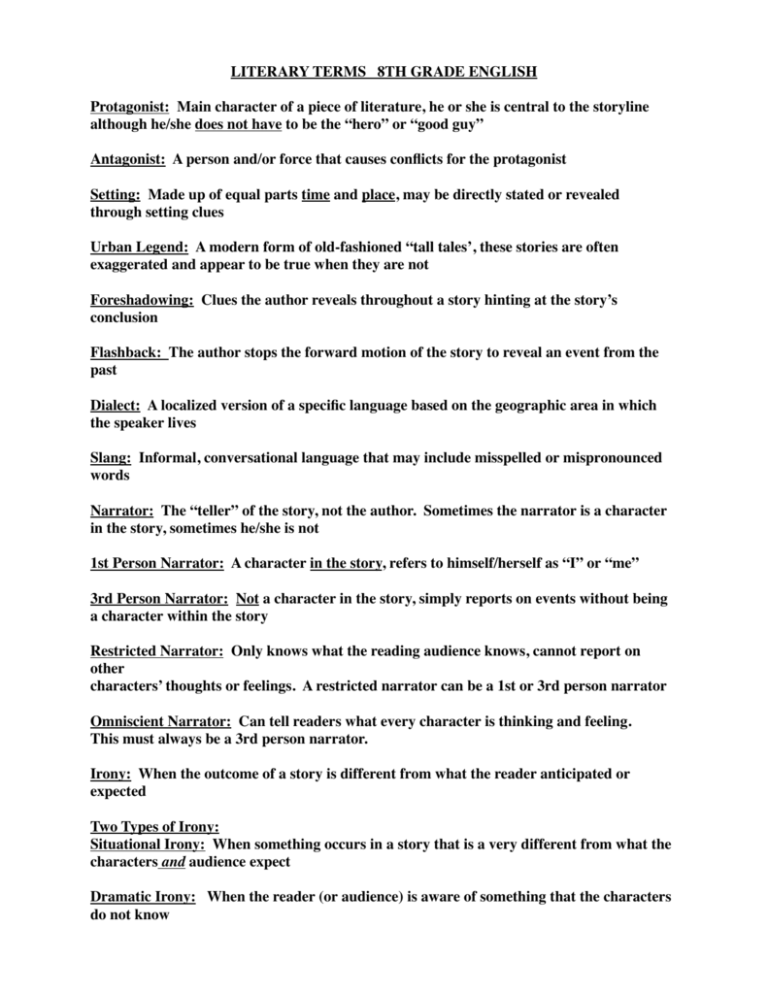
! LITERARY TERMS 8TH GRADE ENGLISH Protagonist: Main character of a piece of literature, he or she is central to the storyline although he/she does not have to be the “hero” or “good guy” ! Antagonist: A person and/or force that causes conflicts for the protagonist ! Setting: Made up of equal parts time and place, may be directly stated or revealed through setting clues ! Urban Legend: A modern form of old-fashioned “tall tales’, these stories are often exaggerated and appear to be true when they are not ! Foreshadowing: Clues the author reveals throughout a story hinting at the story’s conclusion ! Flashback: The author stops the forward motion of the story to reveal an event from the past ! Dialect: A localized version of a specific language based on the geographic area in which the speaker lives ! Slang: Informal, conversational language that may include misspelled or mispronounced words ! Narrator: The “teller” of the story, not the author. Sometimes the narrator is a character in the story, sometimes he/she is not ! 1st Person Narrator: A character in the story, refers to himself/herself as “I” or “me” ! 3rd Person Narrator: Not a character in the story, simply reports on events without being a character within the story ! Restricted Narrator: Only knows what the reading audience knows, cannot report on other characters’ thoughts or feelings. A restricted narrator can be a 1st or 3rd person narrator ! Omniscient Narrator: Can tell readers what every character is thinking and feeling. This must always be a 3rd person narrator. ! Irony: When the outcome of a story is different from what the reader anticipated or expected ! Two Types of Irony: Situational Irony: When something occurs in a story that is a very different from what the characters and audience expect ! Dramatic Irony: When the reader (or audience) is aware of something that the characters do not know ! Plot: The sequence of events that make up a story-usually made up of four to five steps ! (over) Exposition: The first step in the plot, it is the beginning of the story where the reader meets characters and learns about the setting. The reader may also be introduced to the conflict at this point ! Conflict: Part of the rising action (second step) of the story, this is the primary problem facing the protagonist. ! ! Types of conflict: man vs. man, man vs. nature, man vs. self, man vs. society, man vs. machine, man vs. supernatural Complications: Minor problems or obstacles that prevent the protagonist from solving the main conflict of the story. ! Climax: Third step in plot, this is the highest level of suspense, emotion, or action in a story. Place where the conflict is resolved or not. Resolution: Final step in the plot, it is the story’s end where all conflicts/questions may (or may not) be resolved. ! Characterization: The ways in which an author reveals to the reader the personalities and habits of his/her characters ! Four Types of Characters: ! Static characters: Characters whose personalities/actions remain the same throughout the entire story ! Dynamic characters: Characters who undergo a change in the story ! Flat Characters: Characters who only display or reveal one main personality trait ! Round Characters: Characters who display multi-dimensional personality traits, seem very realistic, and are usually displayed in novels and longer works. ! Four methods of Characterization: 1. what the character does (actions) 2. what the character says (dialogue) 3. what the character thinks (thoughts) 4. what other characters reveal about the character ! Suspense Elements: Added to the plot by the author to increase suspense and interest in a story, these elements may include any combination of the following: ! 1. an isolated protagonist 2. a sense of real danger or risk 4. a variety of possible suspects 5. some “red herring” (false) clues 3. a secluded setting (time & place) 6. a history of other victims ! Theme: The overall message an author is trying to communicate through his/her characters’ thoughts and actions ! Symbolism: Person, place, thing, or event that has meaning in itself and also stands for something beyond itself. ! Short Story: a fictional story that can be read, start to finish, in one sitting.
